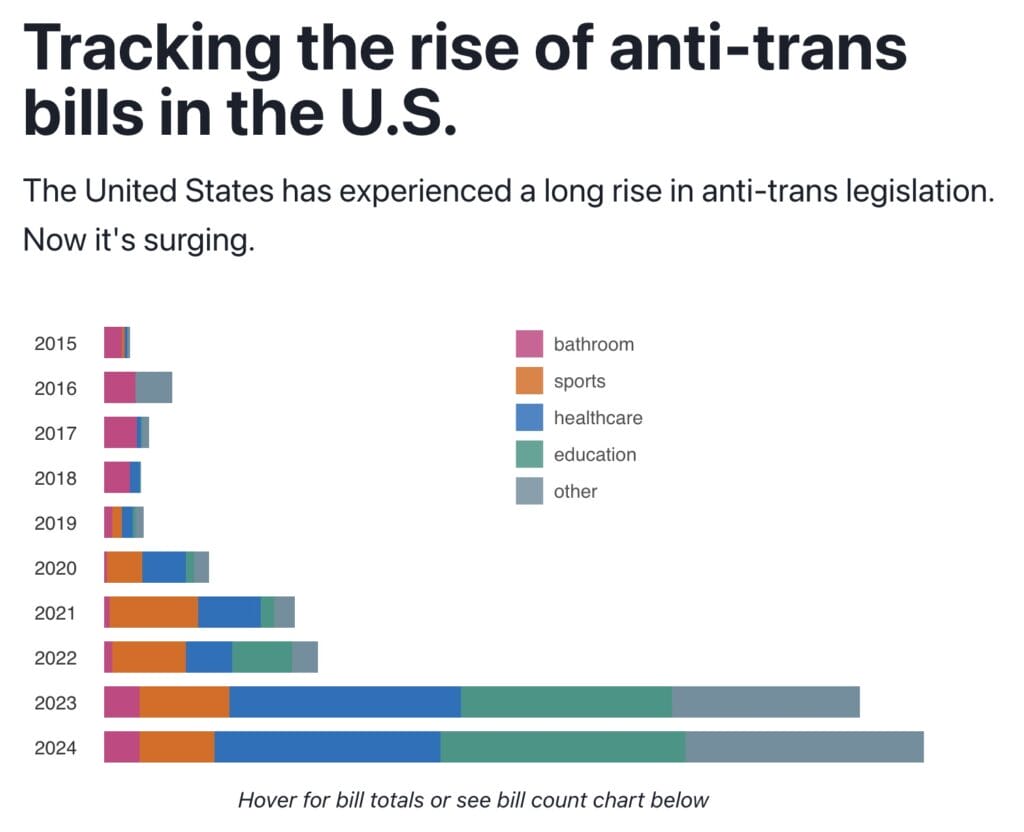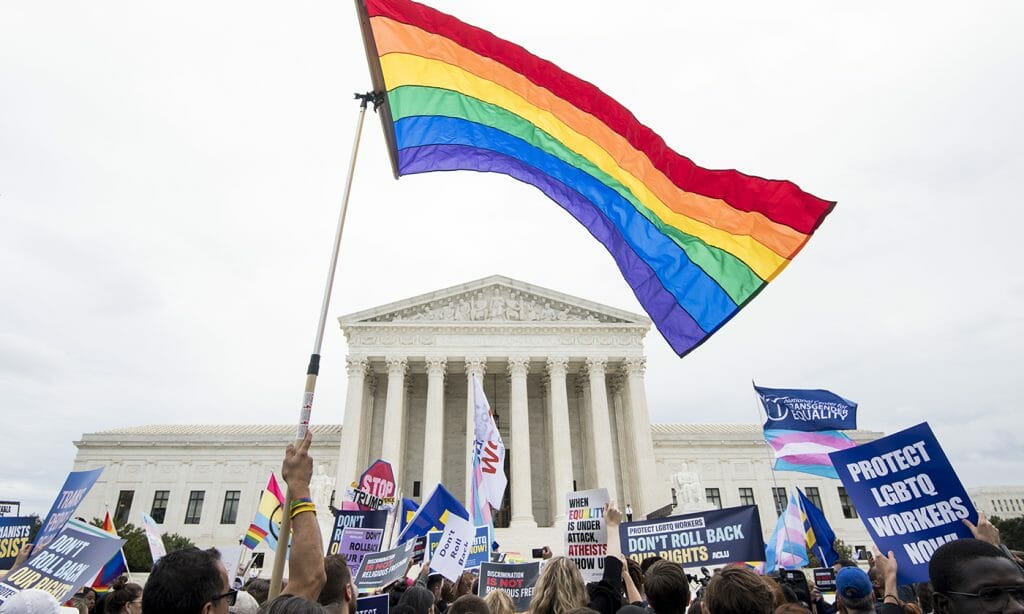LGBTQ people and allies are speaking out about the upcoming groundbreaking oral argument at the U.S. Supreme Court regarding access to health care for transgender youth.
The case, U.S. v. Skrmetti, challenges Tennessee’s law banning health care such as hormone therapy and puberty-pausing medications for transgender youth under 18, while the same treatments remain available to cisgender (non-transgender) youth. The law also criminalizes doctors and providers who seek to support transgender youth. As the ban is one of approximately 25 such bans passed in Republican-controlled state legislatures around the country in recent years, the Court’s decision could have a widespread impact on the availability of care to all youth nationwide.
The stakes are high for transgender people and their loved ones, and for everyone who cares about freedom and the ability to take care of their families without government interference. Experts and members of the transgender community spoke out about the significance of the case and their personal stories on a recent media briefing hosted by GLAAD, the American Civil Liberties Union, the GenderCool Project, and the Fenway Institute.
Sruti Swaminathan (they/them), a staff attorney with the ACLU National, kicked off the briefing by outlining the basics of the case and potential impact, particularly in the current landscape as we prepare for the next presidential administration to take office.
“The misinformation stemming from the Trump campaign and soon to be administration with respect to transgender identities and the demonization of the medical care that transgender people access has a catastrophic impact on the way non-transgender individuals and individuals who have the least amount of knowledge about us view these issues,” Swaminathan explained.
“It is going to be more important than ever to center trans voices in the media and elevate trans stories in daily interactions. Litigation will be essential, but it will not be enough. We will engage on every advocacy front, including mobilizing and organizing our network of millions of ACLU members and activists in every state to work to protect LGBTQ people from the dangerous policies of a second Trump administration.”
Kai (he/him), a 21-year-old college senior and GenderCool Project Champion, transitioned at 10 years old and is thriving today due in large part to the lifesaving health care and support he received. He’s passionate about GenderCool’s work to embrace positive storytelling around young people to dispel misinformation, and urges media coverage and people talking about this landmark case to do the same.

“What’s going to move viewers is seeing our faces, hearing our voices, and feeling the impact that these unjust laws are going to have on real human beings,” Kai said as he urged reporters to focus on the humanity at the center of the case. “Most importantly, allow these trans voices to shine through by truthfully articulating their lived experience; give them the stage to do that. Facts don’t always elicit the emotions we need to tell with this story. Sometimes we find ourselves so caught up in the stats and the legal jargon, and we forget what’s really at stake here especially with this case: the lives of young people who are just trying to be their authentic selves.”
Katie Jenifer (she/they) also participated in the briefing. Katie is a lawyer living in North Carolina and parent of a GenderCool Champion named Maddie, who she describes as a “smart, witty, very loving 17-year-old; and she is also thriving.” Maddie is co-captain of her school cheer team, enjoys embracing her creative side, and has just finished sending off college applications where she aspires to study nursing. Katie described their experiences with the media and shared that they have not always been positive due to a lack of respect for their privacy, and offered tips to journalists for their coverage.
“What I would like people to know is we’re just a regular family,” Katie said. “We’re just trying to figure out life with a teenage daughter and her college-aged sister. We make decisions about our daughters just like I imagine most families do. What should curfew be? What are acceptable school grades? How much is too much screen time? Just like other families, we try to make the best and most informed decisions that we can so we as her parents can raise a happy, healthy, kind, safe member of society.”
Katie agreed with Kai that access to health care has had a tremendous effect on her daughter’s ability to be happy and successful.
Families could be heavily affected by the outcome of this case, but so will affirming doctors and health care providers who know that care should be between families and medical experts that they trust, not the government. Sean Cahill (he/him) is the director of health policy research at the Fenway Institute, which focuses on LGBTQI+ health equity. About half of Fenway Health’s 35,000 patients are LGBTQI+ and 6,000 are transgender or nonbinary, while Sean works in the research arm of the institute which has been tracking the hundreds of bills introduced in state legislatures this year to harm transgender people.

“I don’t think it’s an accident that we see this rise in anti-transgender activism starting in 2015, the year that won full equality for same-sex marriage,” Sean explains, pointing out the trend of anti-transgender bills proposed in various areas over the past decade before spiking in the area of health care. The attacks, while vile, are part of a backlash of the overall increasing visibility and acceptance for transgender and LGBTQ people overall, according to GLAAD’s most recent Accelerating Acceptance survey.
With the wide scope of potential outcomes related to the case, it’s hard to speculate on what the justices will do. What we do know is that the most powerful thing LGBTQ people and our allies can do is to tell our personal stories of love and support for our transgender friends, neighbors, coworkers, and community members, and to share our kindness and understanding in order to move the court of public opinion. We have resilience and strength, and we need to show the next generation of transgender and nonbinary youth in this moment, and always, that we will be here for them.
To learn more about the case, read GLAAD’s fact sheet here: https://glaad.org/fact-sheet-landmark-supreme-court-case-challenging-tennessee-transgender-health-care-ban/













